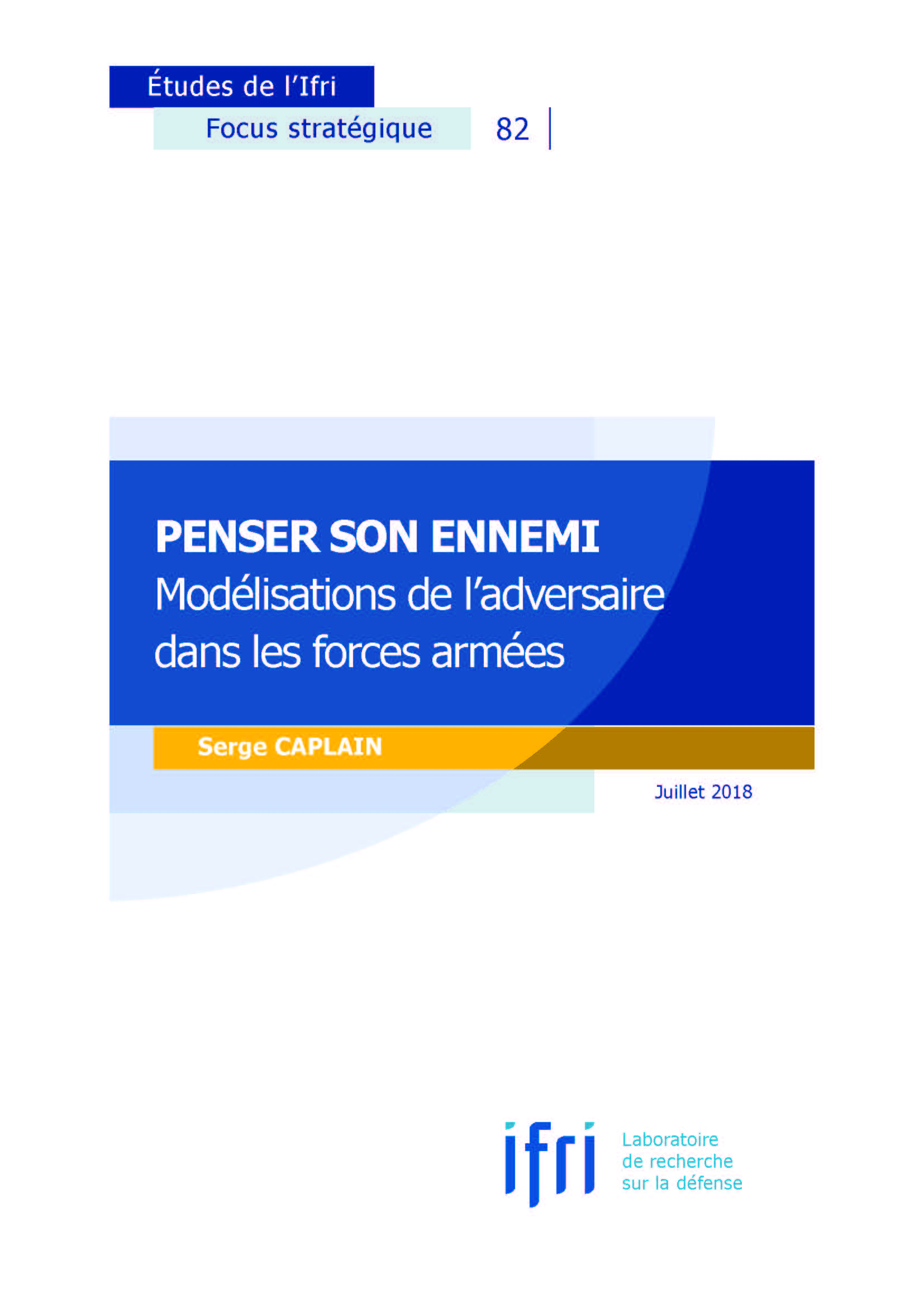Penser son ennemi. Modélisations de l'adversaire dans les forces armées

The designation of an enemy is always the result of a political decision, which generally leads to the opening of hostilities.
If the enemy is the result of a political choice, it is though a military necessity for armed forces which have to carry out an analysis of the enemy at each level of analysis, be it strategic, operational or tactical. The military leader thus has a special bond with “his” enemy, taking him into account through his intelligence system in the unique context of his mission. If the fundamental principles of enemy study recur in most armies, differences in methods of analysis and modeling persist, even within NATO countries, showing the diversity of how to address an adversary. These traditional approaches could however soon be challenged by innovations in military intelligence and applications of artificial intelligence.
This content is available in French: Penser son ennemi. Modélisations de l'adversaire dans les forces armées.
Related centers and programs
Discover our other research centers and programsFind out more
Discover all our analysesThe Franco-German Brigade and the Revival of European Defense
One thing has been clear since Donald Trump's return to the White House: the very existence of the European unification project is threatened. Unless it develops a sovereign defense policy to counter the war in Ukraine and the weakening of American security guarantees, the European Union will continue to see its internal cohesion and external attractiveness wane.
Taking the Pulse: Can Europeans Build Their Independent Extended Nuclear Deterrent?
Confronted with a U.S. disengagement and the Russian threat, Europeans are reconsidering their stance on nuclear deterrence. Given the capabilities of the French and British arsenals, can Europe develop an independent nuclear deterrent?

RAMSES 2024. A World to Be Remade
For its 42nd edition, RAMSES 2024 identifies three major challenges for 2024.
A Transatlantic Defense Industrial Base? Two Contrasting Views
The evolving landscape of global defense cooperation has brought the transatlantic relationship between the United States (US) and Europe into sharp focus. As geopolitical tensions rise and the threat environment becomes more complex, the question of how Europe can best ensure its security while navigating its relationship with the United States has become paramount. This double feature report offers two contrasting views on the dynamics of US-Europe defense industrial relations, highlighting the challenges and opportunities that lie ahead for both parties.








